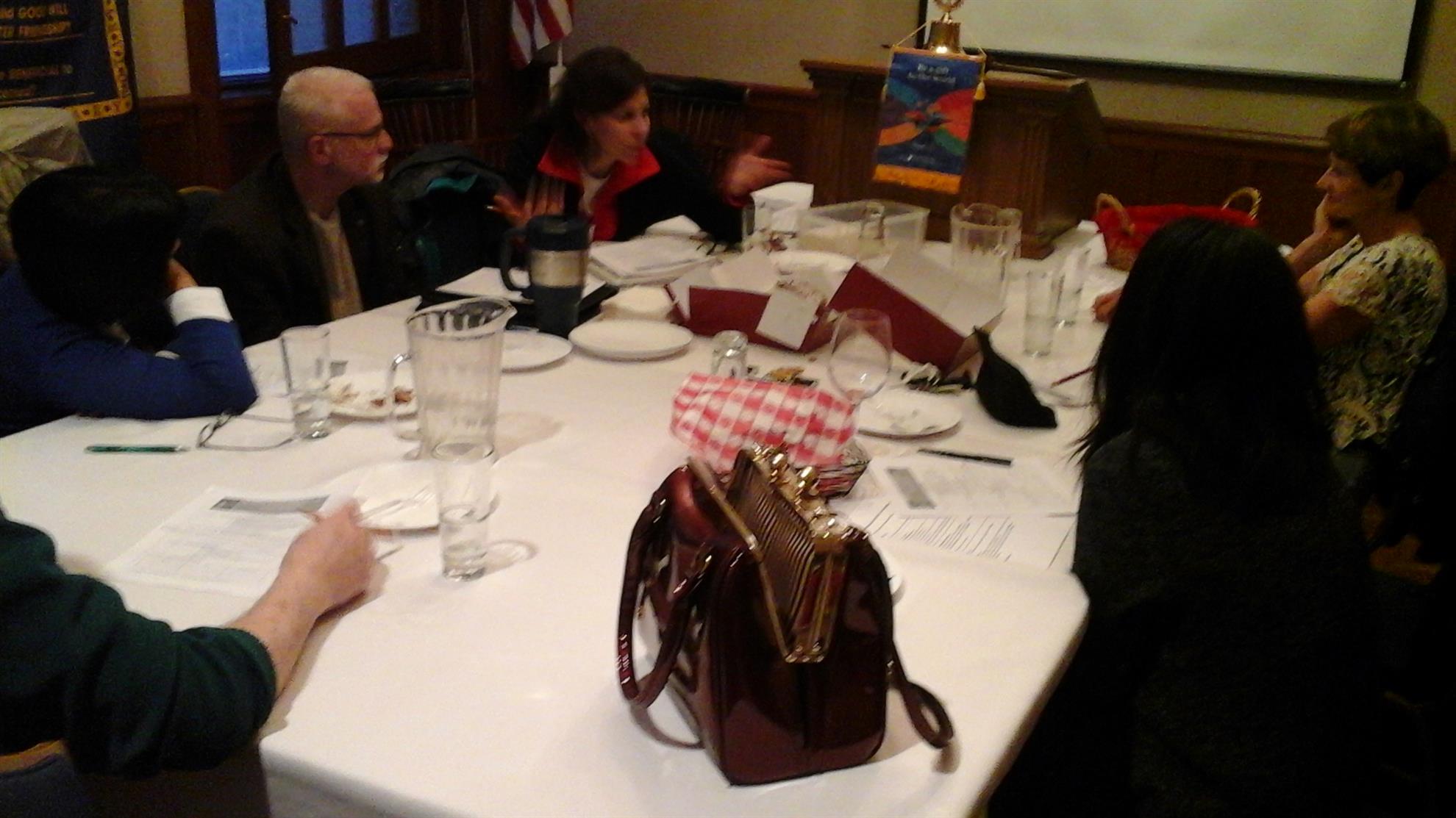Today - NO MEETING - 5th Tuesday
Tuesday, June 14 - Amigos will have a paint service project for Pan-African Community Association (PACA).
Saturday, June 18 from 9 a.m. - Noon - 2nd service Project Day at PACA
Tuesday, June 21 - Amigos 3rd date to help paint at Pan-African Community Association
Save the Date - 4 p.m.- 8 p.m. - Can't come for the whole time. ...come when you can! More info in separate announcement to come. Need not be a Rotarian participate in the service project.
Rotary Amigos:
Tuesday, April 26th – CLUB ASSEMBLY: 2015-16 Rotary Year – The Final “Push” - The meeting reviewed goals for our present year, including an update on the grant received to provide leadership opportunities for middle school and high school students.
Tuesday, April 19th
Laurel Kashinn:
Going Indie Successfully: How to Write a Strategic Business Plan
Rave reviews from those in attendance.
One member said it was just what they needed at this time in their business.
April 12th - Karen Puhl & Pam Schwalbach: Simple Hope - Clean Water Efforts in Tanzania
There are many ways we can all get involved in clean water, regardless of where in the world it is needed. This is one program whose focus is in Tanzania. Working together with all people and faiths to build community and provide hope to those who are compromised in rural Tanzania Africa is the mission of Simple Hope. The direct mission of Simple Hope is to empower lives through faith, nutritious food, clean water and education of sustainable processes. Simple Hope is a registered tax deductible organization in the State of Wisconsin USA
March 21st - Club Assembly

This planning session resulted in a number of actionable items/projects. Duties assigned and planning begun for a community service project with Pan-African Community Association (PACA).
Discussed adding "After-work" to the name of our club since we ARE an "After-Work" club. Everyone was reminded that our club was deliberately chose a time that allowed members to have time to leave work and get to the meeting. It is also convenient for people who are commuters to meet before heading home or passing by downtown Milwaukee on their commute and still have time after the meeting to have dinner with family or friends, or attend an evening class, or head out to the theater or restaurants after the meeting. By not including a meal, the time is shortened and the cost of joining Rotary is not an impediment to joining. It also allows those without flexible work day schedules to participate in Rotary.
It was decided that we will organize a wine tasting event.
March 14th - Leonardo Fernandino:Staff Scientist at Medical College of Wisconsin - BRAIN MAPPING
It was a VERY interesting program and had a lot of "ah-hah" moments.
Leonardo was one of seven authors for
The problem of how word meaning is processed in the brain has been a topic of intense investigation in cognitive neuroscience. While considerable correlational evidence exists for the involvement of sensory- motor systems in conceptual processing, it is still unclear whether they play a causal role. We investi- gated this issue by comparing the performance of patients with Parkinson’s disease (PD) with that of age-matched controls when processing action and abstract verbs. To examine the effects of task demands, we used tasks in which semantic demands were either implicit (lexical decision and priming) or explicit (semantic similarity judgment). In both tasks, PD patients’ performance was selectively impaired for action verbs (relative to controls), indicating that the motor system plays a more central role in the processing of action verbs than in the processing of abstract verbs. These results argue for a causal role of sensory-motor systems in semantic processing.